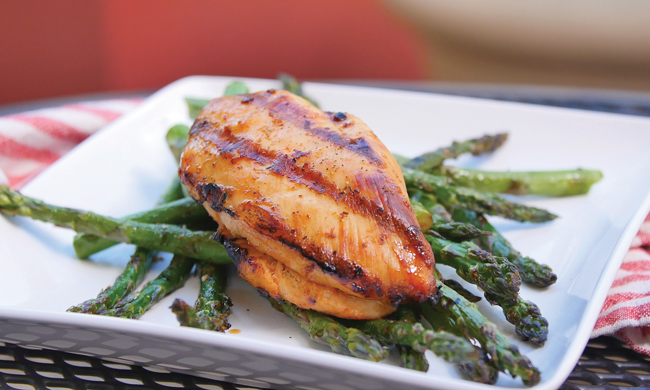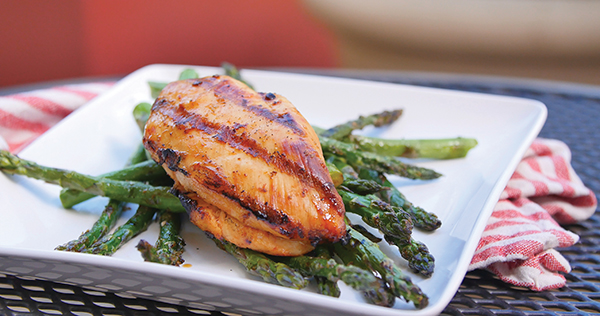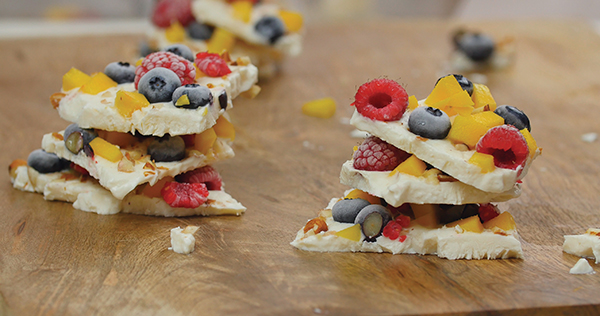We feel, and studies suggest, that cooking can be a form of therapy for many. On Sunday, we post recipes for those looking for new ways to diversify their cookbooks (we do not get paid for this). —Editorial Team.
Cook with Heart Health in Mind

(Family Features) Healthy eating doesn’t have to be difficult or require you to take favorite meals off your family’s menu. In fact, making smart choices when cooking at home can give you more control over the types of tasty, heart-healthy dishes you put on the table.
High cholesterol is one of the major controllable risk factors for heart disease and stroke, with about 38% of American adults diagnosed with high cholesterol, according to the American Heart Association. These cooking tips can help you prepare heart-healthy meals that could help improve cholesterol levels by reducing excess saturated fat and trans fat.
Cook Fresh Vegetables the Heart-Healthy Way
Roasting, steaming, grilling or baking can help bring out the natural flavors of vegetables. Adding herbs and spices can also help make veggies tastier, including combinations like basil with tomatoes, oregano with zucchini, dill with green beans or rosemary with peas and cauliflower.
Reduce Saturated Fat in Meat and Poultry
The amount of saturated fat in meats can vary widely, depending on the cut and how it’s prepared. Opt for poultry and fish over red meat and look for lean cuts of meat with minimal visible fat, which should be trimmed away before cooking. Also limit processed meats such as sausage, bologna, salami and hot dogs, which are often high in calories, saturated fat and sodium.
Use Liquid Vegetable Oils in Place of Solid Fats
Some fats are better for you than others. Liquid vegetable oils such as canola, safflower, sunflower, soybean and olive oil can often be used instead of solid fats, such as butter, lard or shortening. If you must use margarine, try the soft or liquid kind.
Find more heart-healthy recipes and tips for lowering cholesterol at heart.org/cholesterol.

Grilled Tequila-Lime Chicken with Grilled Asparagus
Recipe courtesy of the American Heart Association
Servings: 4
- 1/4 cup tequila or white vinegar
- 2 teaspoons lime zest
- 1/2 cup fresh lime juice
- 2 medium garlic cloves, minced
- 1 tablespoon chipotle pepper canned in adobo sauce, minced, plus 2 tablespoons adobo sauce
- 1 1/2 pounds boneless, skinless chicken breasts, fat discarded
- nonstick cooking spray
- 3 bunches asparagus spears, trimmed
- 1/4 teaspoon salt
- 1/2 teaspoon black pepper, divided
- 2 tablespoons canola oil or corn oil
- In small bowl, stir tequila, lime zest, lime juice, garlic, chipotle pepper and adobo sauce. Pour into large resealable plastic bag. Add chicken and seal bag tightly; turn bag to coat. Refrigerate 2-12 hours.
- Preheat grill to medium-high heat. Lightly spray grates with nonstick cooking spray.
- In large dish, sprinkle asparagus with salt and 1/4 teaspoon pepper. Drizzle with oil. Turn asparagus over to coat.
- Remove chicken from marinade. Discard marinade and wipe most of it off chicken. Sprinkle chicken with remaining pepper.
- Grill 8-12 minutes, or until chicken is no longer pink in center. Transfer to plate and cover with aluminum foil.
- Place asparagus on grill, facing opposite direction of grates. Grill 7 minutes, or until tender crisp.
- Serve asparagus with chicken.

Frozen Yogurt Bark
Recipe courtesy of the American Heart Association
Servings: 8
- 1 1/2 cups 2% low-fat plain Greek yogurt
- 2 tablespoons honey
- 2 tablespoons chopped, unsalted almonds
- 1/2 cup chopped mango
- 1/4 cup blackberries or raspberries
- 1/2 cup blueberries
- In medium bowl, mix yogurt and honey.
- Line 9-by-13-inch baking dish with parchment paper. Use spatula or knife to spread yogurt over entire bottom of dish.
- Pour chopped nuts over yogurt. Use fingers to slightly press into yogurt. Top yogurt with mango, blackberries and blueberries and slightly press into yogurt.
- Cover with plastic wrap or foil and place in freezer overnight.
- To serve: Lift parchment paper from baking dish onto cutting board. Use hands to break bark into pieces.
SOURCE:
American Heart Association

